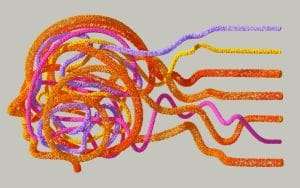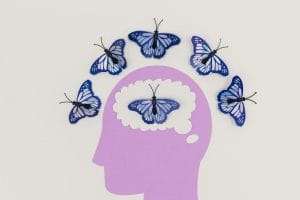Cognitive performance Is becoming increasingly important. Whether you’re a student preparing for exams, a professional navigating demanding workloads, or simply someone looking to maintain mental sharpness as you age, the concept of enhancing brain function holds universal appeal. This growing interest has led to the rise of nootropics – compounds designed to boost cognitive performance and support overall brain health.

What Are Nootropics?
The term “nootropic” was coined in 1972 by Romanian psychologist and chemist Dr. Corneliu E. Giurgea, who developed piracetam, one of the first cognitive-enhancing substances. The word stems from the Greek “noos” (mind) and “tropein” (to bend or turn), literally meaning “mind-bending.” According to Giurgea, true nootropics should enhance learning and memory, protect the brain from physical or chemical injury, have few side effects, and possess extremely low toxicity.
Today, nootropics encompass a broad category of natural and synthetic compounds that claim to improve cognitive functions such as memory, creativity, motivation, and attention. The field has expanded significantly beyond Giurgea’s original definition to include various substances with potential cognitive benefits.
The Science Behind Cognitive Enhancement
The human brain, despite accounting for only about 2% of body weight, consumes approximately 20% of the body’s energy. This metabolically demanding organ requires a complex interplay of nutrients, neurotransmitters, and cellular processes to function optimally. Nootropics aim to support and enhance these processes through several mechanisms:
Neurotransmitter Modulation
Many nootropics work by affecting the brain’s neurotransmitter systems – the chemical messengers that transmit signals between neurons. Key neurotransmitters involved in cognitive function include:
- Acetylcholine: Critical for learning and memory, particularly in the formation of new memories [1]
- Dopamine: Essential for motivation, reward, and focus
- Serotonin: Affects mood, sleep, and appetite
- Glutamate and GABA: The brain’s primary excitatory and inhibitory neurotransmitters, respectively, they maintain cognitive balance [2]
By modulating these neurotransmitter systems, certain nootropics can potentially enhance specific aspects of cognition. For example, compounds that increase acetylcholine levels or sensitivity may improve memory formation and recall.
Cerebral Blood Flow and Metabolism
Another mechanism through which nootropics may work involves enhancing cerebral blood flow and metabolism. The brain requires a constant supply of oxygen and glucose to function optimally. Compounds that enhance blood flow to the brain or improve how cells utilize energy may support cognitive function.
Vinpocetine, derived from the periwinkle plant, has been studied for its effects on cerebral blood flow. Research suggests it may enhance memory and cognitive function by improving blood circulation to the brain and increasing the brain’s utilization of oxygen and glucose.
Neuroprotection and Neuroplasticity
Some nootropics offer neuroprotective effects, helping to shield neurons from oxidative stress and other forms of damage. Others may support neuroplasticity – the brain’s ability to form new neural connections and adapt to new information and experiences throughout life.

Glam Dust
Radiant Skin – Luscious Hair – Pristine Nails
Vitamin Shots
The ultimate brain and body supplements
Vitamin Sprinkles
The ultimate brain and body supplements
Categories of Nootropics – Nootropic vitamins for focus
Nootropics can be broadly categorized into several groups:
Natural Nootropics
These are compounds found in nature, often in foods or herbs with traditional uses for cognitive enhancement:
Herbal Nootropics
Bacopa Monnieri (Brahmi) is an adaptogenic herb used in Ayurvedic medicine for centuries. Modern research suggests Bacopa may enhance memory and reduce anxiety by modulating neurotransmitters and protecting neurons from oxidative stress [3]. In a 12-week randomized controlled trial, participants taking Bacopa showed significant improvements in speed of visual information processing, learning rate, and memory consolidation compared to placebo [4].
Ginkgo Biloba, derived from one of the oldest living tree species, has been extensively studied for its cognitive effects. It appears to work by improving blood flow to the brain and providing antioxidant protection. A meta-analysis of 28 studies found that Ginkgo supplementation may improve aspects of cognition, functional performance, and quality of life in patients with dementia or cognitive impairment.
Panax Ginseng (Asian Ginseng) contains compounds called ginsenosides that may have neuroprotective effects and help reduce mental fatigue. Research indicates that ginseng may modestly improve mental performance, particularly in middle-aged individuals. One study found that a single dose of ginseng improved performance on a mental arithmetic task and reduced self-ratings of mental fatigue.
Food-Derived Nootropics
Omega-3 Fatty Acids, particularly DHA (docosahexaenoic acid), are crucial structural components of brain cell membranes. These essential fatty acids, found primarily in fatty fish, play vital roles in brain development and function. Research suggests that adequate omega-3 intake may help maintain cognitive function with aging. The Framingham Heart Study found that participants with the highest DHA levels had a 47% lower risk of developing dementia compared to those with lower levels.
L-Theanine, an amino acid found in tea leaves, promotes relaxation without sedation. When combined with caffeine, as naturally occurs in tea, L-theanine may enhance attention and reduce the jittery effects of caffeine alone [5]. A study published in Nutritional Neuroscience found that the combination of L-theanine and caffeine improved both speed and accuracy of performance on attention-switching tasks and reduced susceptibility to distracting information [6].
Synthetic Nootropics
These are laboratory-created compounds designed specifically for cognitive enhancement:
Racetams, including piracetam, aniracetam, and oxiracetam, were among the first synthetic nootropics developed. They appear to modulate neurotransmitter systems and enhance cell membrane fluidity. While piracetam has shown some benefits for cognitive decline in elderly populations, the evidence for healthy individuals is less conclusive [7]. A systematic review and meta-analysis concluded that piracetam was superior to placebo in treating cognitive impairment in diverse clinical settings.
Modafinil was originally developed to treat narcolepsy but has gained popularity as a cognitive enhancer. It promotes wakefulness and may improve aspects of attention and executive function. Research suggests modafinil may enhance cognition in sleep-deprived individuals, though its use as a nootropic in healthy populations remains controversial. A comprehensive review published in European Neuropsychopharmacology found that modafinil appears to enhance attention, executive functions, and learning in healthy non-sleep-deprived individuals, with minimal side effects.
Vitamins and Minerals as Cognitive Enhancers
Nutritional status plays a crucial role in cognitive function, and certain vitamins and minerals have particularly strong relationships with brain health:
B Vitamins (B6, B9, B12) are essential for brain function and are involved in the synthesis of neurotransmitters and the metabolism of homocysteine, high levels of which are associated with cognitive decline [8]. A two-year randomized controlled trial found that supplementation with B vitamins slowed brain atrophy in elderly people with mild cognitive impairment, particularly in those with high homocysteine levels [9].
Vitamin D functions as a neurosteroid and has receptors throughout the brain. Deficiency has been linked to cognitive decline and neurodegenerative diseases. A large-scale study published in JAMA Neurology found that severe vitamin D deficiency was associated with a substantially increased risk of dementia and Alzheimer’s disease in elderly people.
Magnesium, particularly magnesium L-threonate, may enhance learning and memory by increasing synaptic plasticity and density [10]. Research in animal models suggests that magnesium L-threonate can increase brain magnesium levels more effectively than other forms and may improve cognitive function. Human studies are still emerging, but preliminary results are promising.
Zinc is concentrated in the brain and plays roles in neurotransmission and neuronal plasticity. Both deficiency and excess can impair cognitive function. A study in the American Journal of Clinical Nutrition found that zinc supplementation improved cognitive performance in schoolchildren, particularly those who were initially zinc deficient.
The Caffeine-L-Theanine Synergy: A Natural Nootropic Combination
One of the most well-studied and widely used natural nootropic combinations is caffeine paired with L-theanine. This combination naturally occurs in tea but is also available as a supplement. Caffeine enhances alertness and attention by blocking adenosine receptors [11], while L-theanine promotes relaxation by increasing alpha brain wave activity and modulating neurotransmitter function.
When combined, these compounds create a balanced cognitive boost – improved attention and alertness from caffeine, without the jitters or anxiety that caffeine alone might cause. This synergistic effect has been demonstrated in multiple studies. Research published in Biological Psychology found that the combination of caffeine and L-theanine improved accuracy during task switching, reduced susceptibility to distraction, and enhanced the ability to focus attention [12].
This complementary relationship exemplifies an important principle in nootropic use: compounds often work better in combination than in isolation, particularly when they have different but complementary mechanisms of action.
Glam Dust
Radiant Skin – Luscious Hair – Pristine Nails
Vitamin Shots
The ultimate brain and body supplements
Vitamin Sprinkles
The ultimate brain and body supplements
Novel Plant-Based Nootropics Gaining Attention
While established herbal nootropics like Bacopa and Ginkgo have been studied for decades, several lesser-known plant-based compounds are gaining scientific attention:
Lion’s Mane Mushroom (Hericium erinaceus) contains compounds that may stimulate nerve growth factor (NGF) production, potentially supporting neuronal health and function. A small clinical trial published in Phytotherapy Research found that older adults with mild cognitive impairment experienced significant improvements in cognitive function scores after consuming Lion’s Mane for 16 weeks compared to a placebo group [13].
Rhodiola Rosea is an adaptogenic herb that may help combat mental fatigue and improve cognitive function under stress. It appears to modulate stress hormones and neurotransmitters. A systematic review of 36 studies found that Rhodiola may improve physical and mental performance and reduce symptoms of fatigue under stressful conditions.
Ashwagandha (Withania somnifera), another adaptogenic herb, has been studied for its potential to reduce stress and anxiety while supporting cognitive function. Research suggests it may protect against neurodegenerative effects of stress and inflammation. A randomized controlled trial found that Ashwagandha extract improved memory and cognitive function in adults with mild cognitive impairment.
Stacking: The Art of Combining Nootropics
“Stacking” refers to the practice of combining multiple nootropics to achieve enhanced or complementary effects. When done thoughtfully, stacking can potentially maximize benefits while minimizing side effects. Common approaches include:
Synergistic Stacking
This involves combining compounds that work through different mechanisms but produce complementary effects. For example, pairing a cholinergic compound like Alpha-GPC with a racetam may enhance acetylcholine utilization and overall cognitive effects.
Comprehensive Stacking
This approach aims to support multiple aspects of cognitive function simultaneously. A comprehensive stack might include compounds for memory, focus, mood, and neuroprotection. For instance, a stack might contain Bacopa for memory, L-theanine for focus, Rhodiola for stress reduction, and antioxidants for neuroprotection.
Cycling
This strategy involves rotating between different nootropics or stacks to prevent tolerance and maintain effectiveness. It also allows the body to rest from particular compounds.
While stacking can be effective, it’s important to approach it with caution. The more compounds involved, the greater the potential for interactions. Starting with minimal effective doses and adding components gradually is advisable.
The Role of Multivitamins in Cognitive Support
While specialized nootropics target specific cognitive pathways, the fundamental importance of overall nutritional status for brain health cannot be overstated. This is where quality multivitamin supplements become valuable:
Foundation for Cognitive Health
The brain requires a wide array of nutrients to function optimally. Deficiencies in even one essential vitamin or mineral can impair cognitive processes. A comprehensive multivitamin provides nutrient insurance, helping ensure that the brain receives all the basic building blocks it needs.
Research from the VITACOG trial demonstrated that supplementation with B vitamins (B6, B9, B12) significantly slowed brain atrophy and cognitive decline in elderly individuals with mild cognitive impairment [9]. Similarly, adequate vitamin D status has been associated with better cognitive performance and reduced risk of dementia.
Addressing Suboptimal Nutrition
Modern diets, processing methods, agricultural practices, and lifestyle factors can lead to suboptimal nutrient intake even among those trying to eat well. Studies suggest that significant portions of the population have inadequate intake of several nutrients important for brain function, including magnesium, zinc, B vitamins, and vitamin D.
A multivitamin can help bridge these nutritional gaps. A meta-analysis of 10 randomized controlled trials found that multivitamin supplementation may improve immediate free recall memory in healthy adults.
Synergistic Support for Nootropic Effects
Many nootropic compounds work optimally only when certain nutritional cofactors are present. For example:
- B vitamins serve as cofactors in the synthesis of neurotransmitters
- Magnesium is involved in over 300 enzymatic reactions, many critical for brain function
- Zinc is essential for neurogenesis and synaptic plasticity
By ensuring adequate levels of these foundational nutrients, a multivitamin can potentially enhance the effectiveness of more targeted nootropic compounds.
Glam Dust
Radiant Skin – Luscious Hair – Pristine Nails
Vitamin Shots
The ultimate brain and body supplements
Vitamin Sprinkles
The ultimate brain and body supplements
Lifestyle Factors: The Most Powerful Nootropics
While supplements can support cognitive function, certain lifestyle factors have profound effects on brain health and performance – often more significant than any pill or powder:
Sleep Optimization
Sleep is when the brain consolidates memories, clears metabolic waste, and restores neural function. Chronic sleep deprivation impairs attention, working memory, and decision-making. Research from the Division of Sleep Medicine at Harvard Medical School has demonstrated that sleep deprivation reduces metabolic activity in multiple brain regions, particularly the prefrontal cortex, which is critical for executive function.
No nootropic can fully compensate for poor sleep. In fact, optimizing sleep quality and duration may be the most powerful cognitive enhancer available. A study published in Sleep found that improving sleep quality led to greater cognitive gains than pharmacological interventions in participants with insomnia and cognitive complaints.
Regular Physical Exercise
Exercise enhances cognitive function through multiple mechanisms:
- Increasing cerebral blood flow
- Stimulating the release of brain-derived neurotrophic factor (BDNF), which supports neuronal growth and survival
- Reducing inflammation
- Improving mood and reducing stress

A meta-analysis published in the British Journal of Sports Medicine found that even a single bout of moderate exercise temporarily improves memory, attention, and processing speed. Regular exercise appears to have cumulative benefits, with particular advantages for executive function.
Cognitive Training and Mental Stimulation
The brain follows the “use it or lose it” principle. Engaging in mentally stimulating activities – learning new skills, solving complex problems, or even playing certain types of games – can maintain and enhance cognitive function.
A 10-year study published in the Journal of the American Medical Association found that cognitive training sessions resulted in improvements in targeted cognitive abilities that persisted for years after the intervention [14]. Participants who received reasoning and speed-of-processing training showed less decline in these abilities compared to controls.
Nutrition and Diet
Beyond specific nutrients, overall dietary patterns significantly influence brain health:
- The Mediterranean diet, rich in fruits, vegetables, whole grains, fish, and olive oil, has been associated with better cognitive function and reduced risk of cognitive decline
- The MIND diet (Mediterranean-DASH Intervention for Neurodegenerative Delay) specifically targets brain health and has shown promising results in observational studies
- Intermittent fasting may enhance cognitive function by stimulating BDNF production and promoting cellular stress resistance
A longitudinal study published in Neurology found that adherence to the Mediterranean diet was associated with larger brain volume, more gray matter, and greater thickness of the cortex – all markers of a younger brain.
The Evolution of Nootropic Supplements: A Comprehensive Guide to Smart Drugs for Enhanced Brain Function
The growing market of nootropic supplements to boost cognitive function has transformed how healthy people approach mental performance enhancement. These “smart drugs” and cognitive enhancers have gained popularity through positive customer reviews praising their effects on focus and memory. A quality supplement for focus often combines ingredients like vitamin B12, which plays a critical role in energy metabolism within the central nervous system [8]. Among the top 10 nootropic supplements, many contain a precise mg of caffeine, a natural stimulant that helps users feel more alert while supporting energy and focus [11].
Research suggests nootropics may improve attention and focus, though more research is needed regarding their long-term effects. Popular dietary supplement options often feature lion’s mane mushroom, which has been shown to improve thinking skills and protect brain tissue from aging [13]. Alpha brain and similar focus capsules frequently combine B vitamins, fish oil supplements, and plant-based ingredients to support healthy brain function, potentially improving concentrations in the brain that affect cognitive health.
Herbal supplements with organic ingredients may support memory and learning while helping maintain short-term memory and mental clarity. While some supplements contain compounds that may help improve cellular energy production, allowing the brain to maintain optimal energy and focus throughout the day, the use of nootropics should be approached with caution. Nutritional supplements that include vitamins and minerals like vitamin B may improve memory and potentially slow cognitive decline, particularly in the part of the brain associated with learning and memory [9].
Though supplements can help boost brain power and potentially protect the brain from the effects that may accompany brain aging, creating a better brain through daily energy supplements requires understanding both their benefits and limitations. Each nootropic supplement helps in different ways – some may protect the brain while others support energy metabolism, but responsible use remains essential as we continue exploring how these cognitive-enhancing compounds support brain function.
Balancing Expectations: What Nootropics Can and Cannot Do
While research on nootropics continues to evolve, it’s important to maintain realistic expectations:
Potential Benefits
- Modest improvements in specific cognitive domains
- Better resilience to mental fatigue
- Enhanced focus and attention
- Support for long-term brain health
Limitations
- No nootropic can transform average cognitive abilities into exceptional ones overnight
- Benefits often require consistent use over time
- Individual responses vary significantly
- Many nootropics have modest effect sizes in research studies
A systematic review and meta-analysis of cognitive enhancers in healthy individuals found small but significant positive effects on some aspects of cognition, but highlighted those benefits tended to be specific rather than global and varied substantially between individuals.
Safety Considerations and Potential Risks
Like any bioactive compounds, nootropics come with potential risks and safety considerations that should be carefully evaluated:
Synthetic vs. Natural Doesn’t Determine Safety
The distinction between “natural” and “synthetic” doesn’t reliably predict safety. Some natural compounds can have significant side effects or interactions, while some synthetic compounds have excellent safety profiles. Each substance must be evaluated on its own merits.
Quality and Purity Concerns
The supplement industry is less regulated than pharmaceuticals, raising concerns about:
- Accurate dosing
- Contamination
- Adulteration
- Presence of undeclared ingredients
A study published in JAMA Network Open found that some supplement products marketed as cognitive enhancers contained unapproved pharmaceutical ingredients not listed on the label. Choosing products from reputable manufacturers who conduct third-party testing is crucial.
Medication Interactions
Many nootropics can interact with prescription medications:
- Ginkgo biloba may increase bleeding risk when combined with blood thinners
- St. John’s Wort affects the metabolism of numerous medications
- Some nootropics affect neurotransmitter systems targeted by psychiatric medications
Always consult with a healthcare provider before combining nootropics with prescription drugs.
Long-term Effects
For many nootropics, particularly newer ones, long-term effects remain understudied. The cognitive benefits observed in short-term studies might not persist, or unforeseen effects might emerge with prolonged use.
Glam Dust
Radiant Skin – Luscious Hair – Pristine Nails
Vitamin Shots
The ultimate brain and body supplements
Vitamin Sprinkles
The ultimate brain and body supplements
The Future of Cognitive Enhancement
The field of nootropics continues to evolve rapidly, with several promising developments on the horizon:
Personalized Cognitive Enhancement
With advances in genetics and neuroscience, personalized approaches to cognitive enhancement may become possible. Individual genetic variations affect how people respond to different nootropics, and future recommendations might be tailored to genetic profiles.
Research in pharmacogenomics is beginning to identify genetic markers that predict response to certain cognitive enhancers. For example, variations in the COMT gene affect dopamine metabolism and may influence how individuals respond to dopaminergic compounds.
Enhanced Delivery Systems
New delivery systems could improve how nootropic compounds reach the brain:
- Liposomal encapsulation may enhance absorption and bioavailability
- Nanotechnology could enable targeted delivery to specific brain regions
- Novel formulations might reduce side effects or improve stability
These technologies could make existing nootropics more effective and open doors to using compounds that previously couldn’t cross the blood-brain barrier effectively.
Integration with Technology
The integration of nootropics with technologies like neurofeedback and transcranial direct current stimulation (tDCS) represents an emerging frontier. These approaches might offer synergistic benefits that exceed what either method could achieve alone.
Preliminary research suggests that combining cognitive enhancers with brain stimulation techniques may produce enhanced effects on learning and memory. As both fields advance, integrative approaches may become more common.
Conclusion: A Balanced Approach to Cognitive Enhancement
Cognitive enhancement through nootropics represents a complex and evolving field with both promise and limitations. The most effective approach combines multiple strategies:
- Build a solid foundation with quality nutrition, adequate sleep, regular exercise, and mental stimulation
- Address specific deficiencies with targeted supplementation where needed
- Consider evidence-based nootropics for particular cognitive goals
- Maintain realistic expectations about what can be achieved
A comprehensive multivitamin supplement provides important nutritional insurance for brain health, supporting the basic metabolic processes upon which cognitive function depends. When combined with targeted nootropics and positive lifestyle practices, this foundation can help optimize cognitive performance in both the short and long term.
As research continues to advance, our understanding of how to safely and effectively enhance cognitive function will only improve. By staying informed about emerging evidence and taking a measured, evidence-based approach, we can make intelligent choices about supporting our most valuable asset – our brain.
Glam Dust
Radiant Skin – Luscious Hair – Pristine Nails
Vitamin Shots
The ultimate brain and body supplements
Vitamin Sprinkles
The ultimate brain and body supplements
References
[1] Ferreira-Vieira, T. H., Guimaraes, I. M., Silva, F. R., & Ribeiro, F. M. (2016). Alzheimer’s disease: Targeting the cholinergic system. Current Neuropharmacology, 14(1), 101-115. https://doi.org/10.2174/1570159X13666150716165726
[2] Blokland, A., Sambeth, A., Prickaerts, J., & Riedel, W. J. (2016). Why an M1 antagonist could be a more selective model for memory impairment than scopolamine. Frontiers in Neurology, 7, 167. https://doi.org/10.3389/fneur.2016.00167
[3] Abdul Manap, A. S., Vijayabalan, S., Madhavan, P., Chia, Y. Y., Arya, A., Wong, E. H., Rizwan, F., Bindal, U., & Koshy, S. (2019). Bacopa monnieri, a neuroprotective lead in Alzheimer Disease: A review on its properties, mechanisms of action, and preclinical and clinical studies. Drug Target Insights, 13, 1-13. https://doi.org/10.1177/1177392819866412
[4] Kongkeaw, C., Dilokthornsakul, P., Thanarangsarit, P., Limpeanchob, N., & Norman Scholfield, C. (2014). Meta-analysis of randomized controlled trials on cognitive effects of Bacopa monnieri extract. Journal of Ethnopharmacology, 151(1), 528-535. https://doi.org/10.1016/j.jep.2013.11.008
[5] Giesbrecht, T., Rycroft, J. A., Rowson, M. J., & De Bruin, E. A. (2010). The combination of L-theanine and caffeine improves cognitive performance and increases subjective alertness. Nutritional Neuroscience, 13(6), 283-290. https://doi.org/10.1179/147683010X12611460764840
[6] Owen, G. N., Parnell, H., De Bruin, E. A., & Rycroft, J. A. (2008). The combined effects of L-theanine and caffeine on cognitive performance and mood. Nutritional Neuroscience, 11(4), 193-198. https://doi.org/10.1179/147683008X301513
[7] Einstein, G. O., McDaniel, M. A., Owen, P. D., & Coté, N. C. (1990). Encoding and recall of texts: The importance of material appropriate processing. Journal of Memory and Language, 29(5), 566-581. https://doi.org/10.1016/0749-596X(90)90052-3
[8] Kennedy, D. O., & Wightman, E. L. (2011). Herbal extracts and phytochemicals: Plant secondary metabolites and the enhancement of human brain function. Advances in Nutrition, 2(1), 32-50. https://doi.org/10.3945/an.110.000117
[9] Douaud, G., Refsum, H., de Jager, C. A., Jacoby, R., Nichols, T. E., Smith, S. M., & Smith, A. D. (2013). Preventing Alzheimer’s disease-related gray matter atrophy by B-vitamin treatment. Proceedings of the National Academy of Sciences, 110(23), 9523-9528. https://doi.org/10.1073/pnas.1301816110
[10] Malinow, R., & Malenka, R. C. (2002). AMPA receptor trafficking and synaptic plasticity. Annual Review of Neuroscience, 25(1), 103-126. https://doi.org/10.1146/annurev.neuro.25.112701.142758
[11] Nehlig, A., Daval, J. L., & Debry, G. (1992). Caffeine and the central nervous system: mechanisms of action, biochemical, metabolic and psychostimulant effects. Brain Research Reviews, 17(2), 139-170. https://doi.org/10.1016/0165-0173(92)90012-B
[12] Livingston, G., Sommerlad, A., Orgeta, V., Costafreda, S. G., Huntley, J., Ames, D., … & Mukadam, N. (2017). Dementia prevention, intervention, and care. The Lancet, 390(10113), 2673-2734. https://doi.org/10.1016/S0140-6736(17)31363-6
[13] Mori, K., Inatomi, S., Ouchi, K., Azumi, Y., & Tuchida, T. (2009). Improving effects of the mushroom Yamabushitake (Hericium erinaceus) on mild cognitive impairment: a double-blind placebo-controlled clinical trial. Phytotherapy Research, 23(3), 367-372. https://doi.org/10.1002/ptr.2634
[14] Aguiar, S., & Borowski, T. (2013). Neuropharmacological review of the nootropic herb Bacopa monnieri. Rejuvenation Research, 16(4), 313-326. https://doi.org/10.1089/rej.2013.1431
[15] Sahelian, R. (2000). Mind boosters: A guide to natural supplements that enhance your mind, memory, and mood. St. Martin’s Griffin.



.png)
